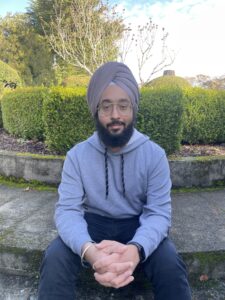The Camosun College Student Society (CCSS) held its fall student elections from Monday, October 23 to Wednesday, October 25. A total of 784 students voted in the elections, which were held online. 468 voted on day one, 87 on day two, and 229 on day three.
CCSS external executive Jagjeet Singh says that overall, the CCSS is happy with the voting turnout—although an increase in votes would be ideal going forward.
“I think it was an average turnout,” says Singh. “Obviously, we’d like to have more voting if possible by our students; something that we always wish for. We only had 784 students who voted, which is about less than 10 percent of the total population [of Camosun College students]. It’s always good to have higher numbers because if a larger part of our community votes it’s always good for democracy.”

In the elections, Himanshi (no last name given) was voted in as Interurban executive, and Kaelyn Clarke was voted in as Indigenous director.
Elva Gutierrez, Raul De La Garza, Gerardo Velasco Gil, and Navreet Singh Sidhu were voted in as Lansdowne directors. Ayush Chauhan and Purvi Dubey were voted in as Interurban directors.
Pedro Jose Gudiel was voted in as off-campus director.
The referendum question asking if students support increasing the Nexus levy fee from 49 cents a month to 79 cents a month did not pass, with 48 percent of students voting yes (referendums need 51 percent of those voting to vote yes to pass).
The referendum question asking if students support increasing the Canadian Alliance of Student Associations (CASA) fee from 49 cents a month to 61 cents a month passed, with 61 percent of students voting yes.
According to Singh, the results of the two referendums produced mixed feelings among those at the CCSS. On one hand they’re happy that the CASA referendum passed so they can send board members to conferences, however, they’re disappointed with the results of the Nexus referendum.
“The referendum, it’s tough,” says Singh. “The CASA referendum passed with about 61 percent votes, which is a good thing because we were struggling, post-COVID especially, with the hotel prices, and everything going up substantially. Hotel prices have gone up even more than inflation right now and that is something that has happened to a lot of student societies across Canada… We were really saddened thinking about the Nexus referendum because it was so close, like 18 votes difference. And you always want to have that voice on campus that keeps you accountable, us and the college. Which is a bit concerning, but let’s see how we can make things work and move forward with it.”
Singh says that the CCSS is excited to work with its new board of directors. However, there are still a few positions that need to be filled at Interurban.
“[The CCSS is] pretty happy with the results overall,” says Singh. “We got most of our positions filled. So the only positions open right now are two Interurban director positions, so those are directors at large. We will try to see if we can find someone to fill it, otherwise they will go in election in the March period anyways.”
The CCSS is now focusing on welcoming and training the new board members to ensure their success.
“We will give them some basic training about meetings in general,” says Singh. “Once we are back, the next board meeting will be in December. We will try to host a day of orientations because that’s really important, making them aware about their goals, responsibilities, any concerns that they might have to deal with: how to not get sued, things like that, which is really important as an elected official.”
